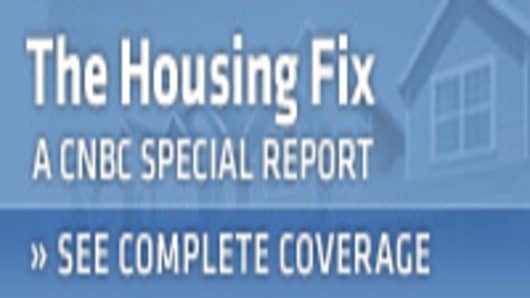So like any good essay, we had to start with the thesis statement, which really comes down to: Is home ownership an American right?
The government appears to say yes.
In my piece on CNBC today, I relate through the history of just how we got to this ownership society…the politics, policies and politicians behind home ownership. But here I'd like to take the conversation forward. We know how we got here, and we know what happened when home ownership went completely haywire. Now the politicians are calling for "responsible" home ownership, and yet government continues to pour billions of dollars into programs and incentives that push more borrowers into homes that may not be the best fit.
Today the S&P Case Shiller Home Price Indexshowed an improvement in home prices over the same period last year. California is leading the way in recovery. But in an interview with David Blitzer of S&P, you would have thought prices fell through the floor again. Blitzer's claim is that prices should be recovering far better and faster than they are. He cites the disappointing fact that nine of the top twenty cities hit new price lows at some point since the beginning of this year. And then there's the concern that the gains are artificially boosted by the home buyer tax credit which expired April 30th.
“Other housing data confirm the large impact, and likely near-future pullback, of the federal program. Recently released data for May 2010 show sharp declines in existing and new home sales and housing
starts. Inventory data and foreclosure activity have not shown any signs of improvement. Consistent and sustained boosts to economic growth from housing may have to wait to next year,” write Blitzer.
And the bulk of housing analysts weighing in express the same concern:
Patrick Newport, IHS Global Insight: "The Case-Shiller house price indices (HPIs) are three-month moving averages, so April's readings reflect transactions in 20 markets that closed in February, March, and April. These were months in which demand was picking up because of the second homebuyers' tax credit. April's broad-based increase in prices, the first in seven months, thus, is without a doubt related to this credit."
Peter Boockvar, Miller Tabak and Co.: "Bottom line, with the housing industry now left to its own natural supply/demand dynamic, the real test comes and while we look to the homebuilding stocks and other material suppliers and home retailers to gauge market reaction, don't ignore US banks who have mostly assumed no double dip in housing and thus a hoped for stabilization is reflected in the pricing of mortgage related securities on their books."



